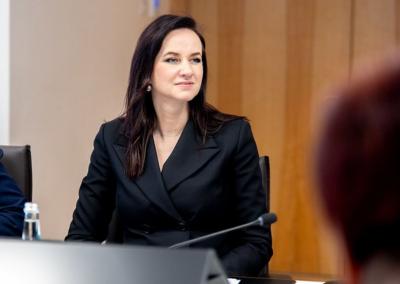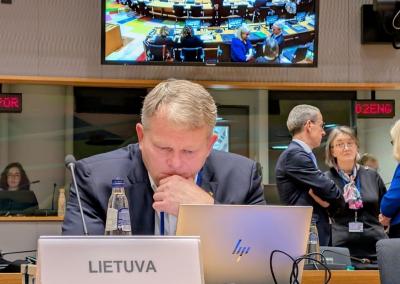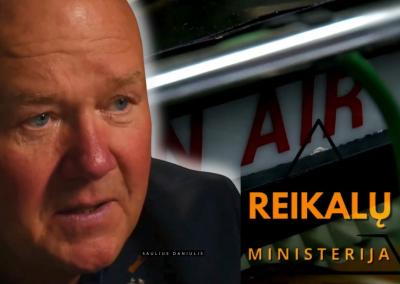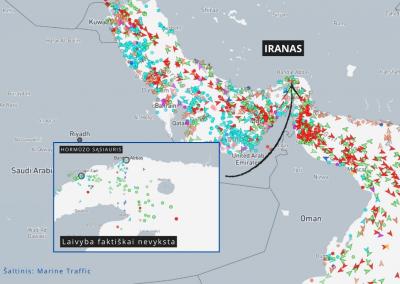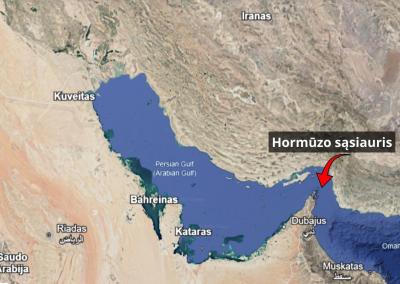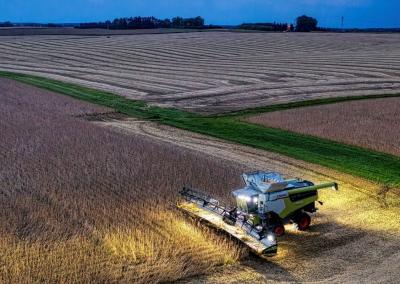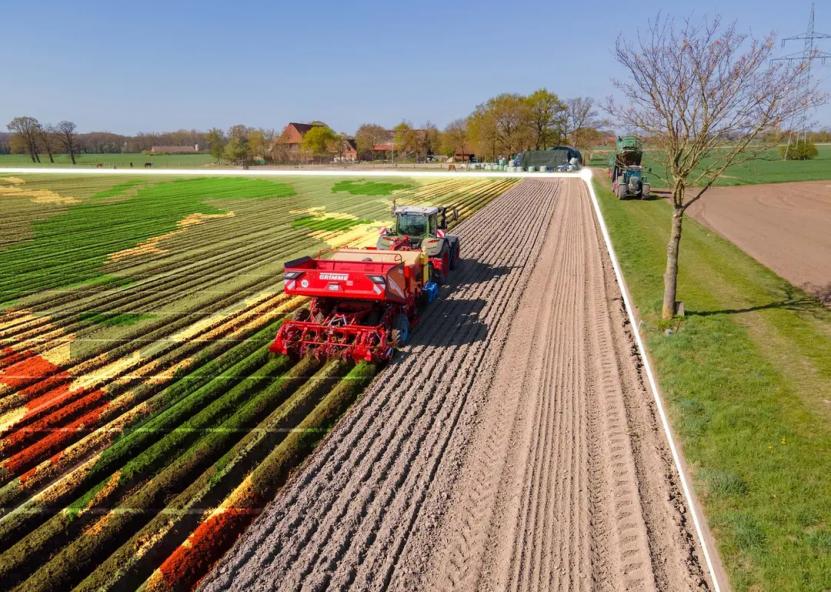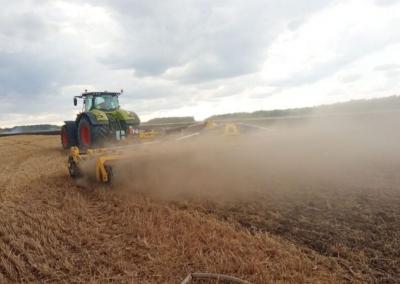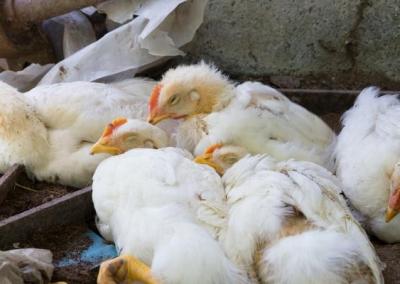Deputy Minister: agricultural machinery will be charged half the toll for toll roads
The introduction of e-tolling would mean that farmers transporting primary produce on toll roads would pay half as much as other hauliers, says Transport Minister Roderick Ziobak.
„The methodology of the toll system includes a system of discounts for the agricultural sector. I am talking about primary agricultural production – milk, cereals, all the raw materials used to produce animal feed. For these activities, producers' vehicles used for the sale of the extracted products will be subject to a 0.5 coefficient of the toll for the use of toll roads," Žiobakas told a meeting of the Seimas Committee on Rural Affairs on Wednesday.
„This would mean that all agricultural operators transporting agricultural products would pay half as much as transporters or representatives of all other sectors“, – he clarified.
According to a spokesman for the Ministry of Transport and Communications, this compromise was reached in discussions with agricultural representatives, who were concerned about the rising costs of transporting raw materials from one place to another.„This was the solution and we think it is a good option that allows to maintain a balance between securing funding for roads and taking into account the importance of agriculture for the country's economy and politics“, – assured R. Ziobak.
Tax collections are projected to almost triple with the introduction of e-tolling
According to the Vice-Minister, the vignette system currently used for toll collection will generate around €75 million in revenue in 2025. The new system, he said, should increase tax collection several times over.
„Vignettes generated around €75 million in collections this year. (...) With the introduction of the e-tolling system, we expect collections from the toll road network to be between €150 million and €200 million“," said Mr Ziobak.
„You could say that the revenue would triple. Install it sooner and at least we will have a sustainable source for a fund that we hope will save our roads," added Kazys Starkevičius, a member of the Rural Affairs Committee.
A member of the Transport and Communications Ministry's leadership also assures that with the adoption of the State Road Fund in the last session of the Seimas, which will come into force in 2026, all the taxes collected from the toll roads will go back into the roads.
„With the adoption of the Road Fund Law in the Seimas, the principle of fairness has been secured – when people use the roads and pay taxes for it, that part of the tax will go back to the same roads. (...) The Ministry of Finance calculates similar revenues and I can assure you that all that money will go back to the roads," said Mr Žiobák.
ELTA recalls that e-tolling is part of the Road Fund project adopted in the last session of the Parliament. The fund will be established from 1 January next year and will operate alongside the Road Maintenance and Development Programme (RDPP).
In fact, a draft bill is currently making its way through Parliament to delay the entry into force of the e-tolling system until 2027, so that the new regime is fully ready to work effectively. The bulk of the fund until the new system comes into force will come from road user charge vignettes.
According to the draft state budget submitted to the Seimas, funding for roads next year will amount to a total of €815.5 million, including €178.8 million for the State Road Fund, €436.6 million for the RDPP and €200.1 million for the European Union (EU) financial support.

















